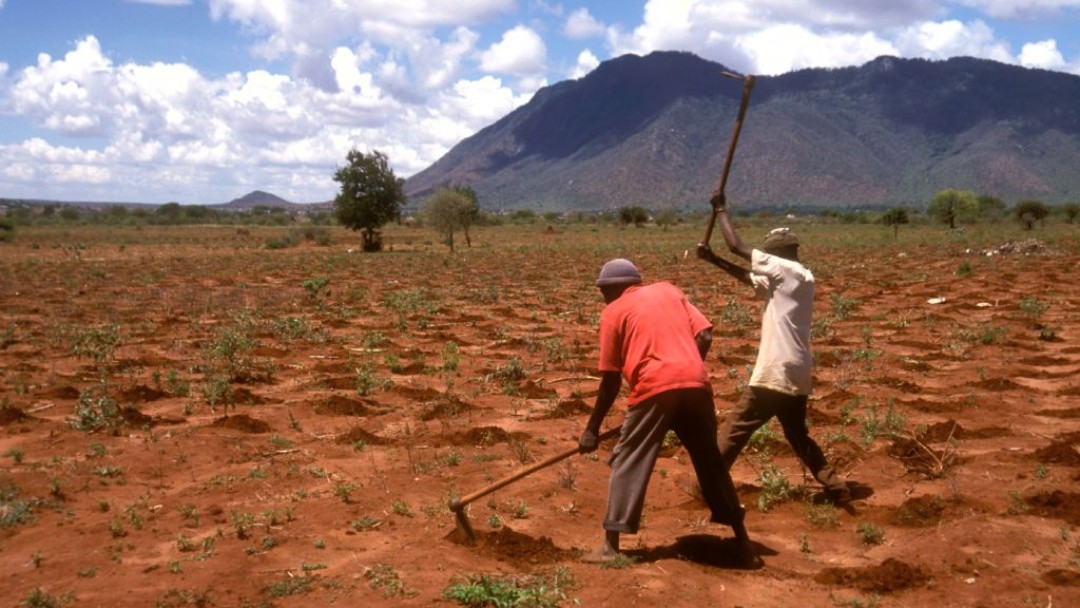News from 2015-01-22 / KfW Development Bank
Swift aid for drought victims
New insurance against droughts in Africa bears fruit
New drought insurance in Africa is having an impact. The insured countries of Senegal, Niger and Mauritania are now receiving a total of USD 25 million (EUR 21 million) quickly and with a minimum of red tape to help people affected by the massive droughts. It simply did not rain enough in the Sahel in 2014. In some cases the rain fall was up to 50 % less than in normal years. Farmers were unable to harvest sufficient crops, and there is a shortage of food and fodder. Roughly two million people are in urgent need of aid. "These countries are now receiving rapid financial assistance, which shows that the insurance concept works", said KfW team leader Monika Beck. Last March, KfW Development Bank played a substantial role in establishing and developing the Africa Risk Capacity Insurance Company (ARC).
On behalf of the German Federal Ministry for Economic Cooperation and Development (BMZ), KfW contributed roughly USD 50 million (EUR 35 million) in seed capital for the ARC. Another USD 50 million was added by the United Kingdom. Reinsurers provided 55 million in reinsurance cover. Roughly USD 20 million was raised from premiums in initially five countries that took out insurance against droughts.
Before taking out a policy, governments had to show how they intended to use the funds in the event of a drought. These contingency plans were assessed by independent experts before the contracts were signed. "The plans set forth how the funds would be employed", emphasised Monika Beck. They can be used for direct food aid for starving people, but also for resistant seeds or the drilling of wells to facilitate harvests when the next drought comes around.
Auditor monitored proper use of funds
The three countries now taking advantage of the insurance protection submitted such contingency plans. Meanwhile, satellite pictures have confirmed that the rain fall was indeed very low and the harvests will be small. "The contingency plans will now be adjusted and refined for the regions affected", explained project manager Susanne Feser. The comprehensive preparations mean that the programmes could progress quickly and the people may receive their aid within four months at most. In the past it has taken nine to twelve months for assistance to actually reach starving people as part of international relief operations.
"The aid funds should be implemented quickly, but properly too of course", stressed Ms Beck. This is why an auditor of the insurance company is monitoring how the money is spent and whether it does in fact reach the populations in need. "If this does not happen then the respective government must pay the funds back", revealed Beck. If they refuse to make the repayment, other co-insured countries become liable, which results in significant pressure to use the funds properly.
The first disbursement to insured countries was "a milestone and a financial innovation for aid in the Sahel" said Robert Piper, UN coordinator for humanitarian aid in the Sahel.


Share page
To share the content of this page with your network, click on one of the icons below.
Note on data protection: When you share content, your personal data is transferred to the selected network.
Data protection
Alternatively, you can also copy the short link: https://www.kfw-entwicklungsbank.de/s/enzBWrMC.-wA
Copy link Link copied